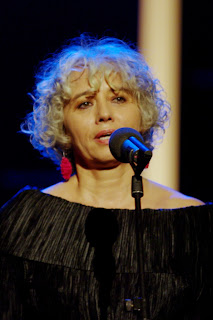 |
| Primoz Jesenko |
The "Intercriticism" conference attempted a recontextualization and re-organization of critical writing about theatre and the performing arts, examining the situation of critical writing from various viewpoints and considering its professional position within particular social contexts. The initial presentation by Rok Vevar established "Intercriticism" as a notion that has yet to be given a full definition. It is hoped that in the course of the upcoming debate such a definition may emerge. As proposed in the call of the Slovenian section, critical writing has become just one of the roles fulfilled by theatre and performing arts critics. How do the various positions held by critics affect analysis, description, evaluation, and social position of the observer. And how do these positions influence the critic's relationship to the subject of observation?
More than coming to a common denominator in dealing with intercriticism, the discussion pointed out the heterogeneous ways of reflecting criticism and its roles in the countries of presenters. Apart from the more theoretical discourse of a couple of papers (i.e., on transfigurations of critical judgment of the "new" criticism), the conference presented many individual experiences. Although some presentations contradicted others in mild ways—which was anticipated in the dramaturgy of the selection process—papers pointed to other possible understandings of the proposed term with the "inter" prefix: the intervention of criticism in society, the intervention of the critic in the artistic event, a form of collaboration among critics.
 |
| Observing "Intercriticism" (Photo: Katayoun Salmasi) |
Issues surrounding conflict of interest, critical engagement in society, the myth of critical distance and objectivity, and the Code of Practice of the AICT-IATC were discussed as well. The moderator of the concluding session, Kristof Jacek Kozak, noted that the debated notion became ever more elusive as the conference evolved. The variety of perceptions of contemporary theatre and performing arts criticism needs to be acknowledged in order to reach a fruitful debate on common phenomena of criticism.
The conference filled the auditorium on both days and produced a lively debate after every presented paper, which confirmed AICT-IATC as a highly responsive organism. This proved that reflecting and discussing the state of theatre criticism is a necessary intellectual discipline at any given moment. Hope persists that the term of intercriticism will pass into the general use and will in time gain a recognizable theoretical meaning. The notion managed to arouse constructive responses at the Maribor conference but its persistence still needs to be tried.






